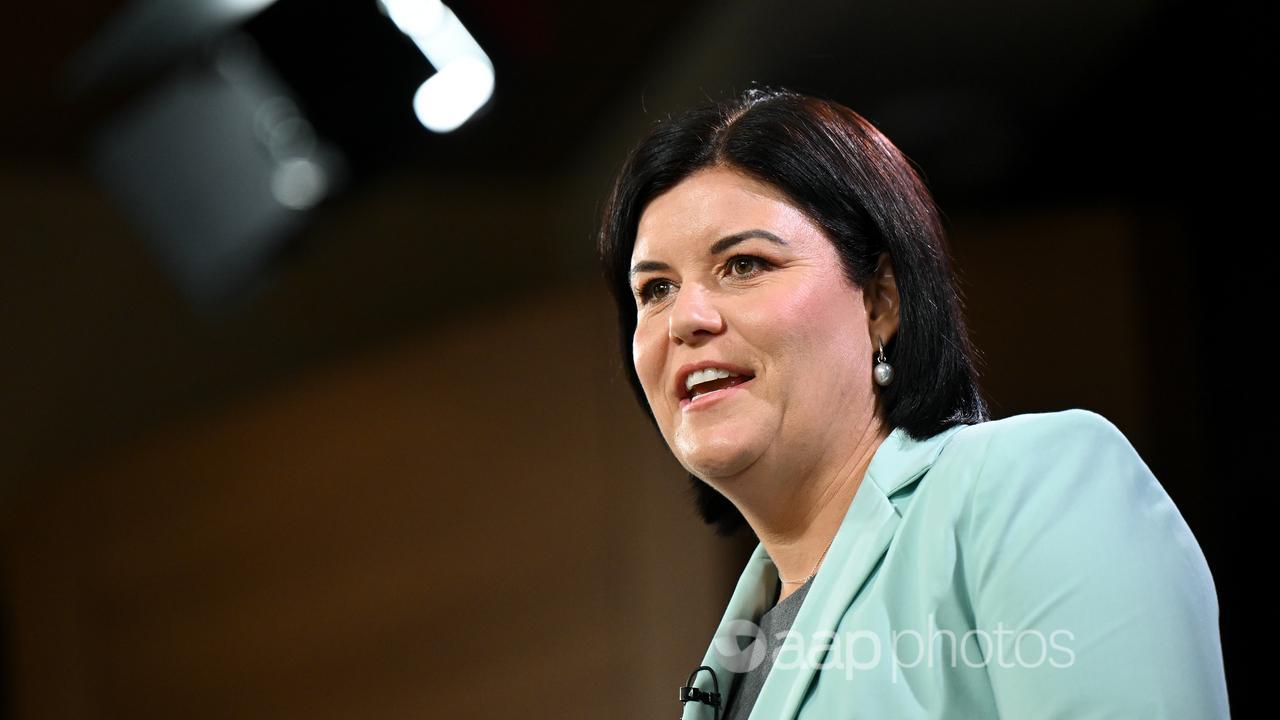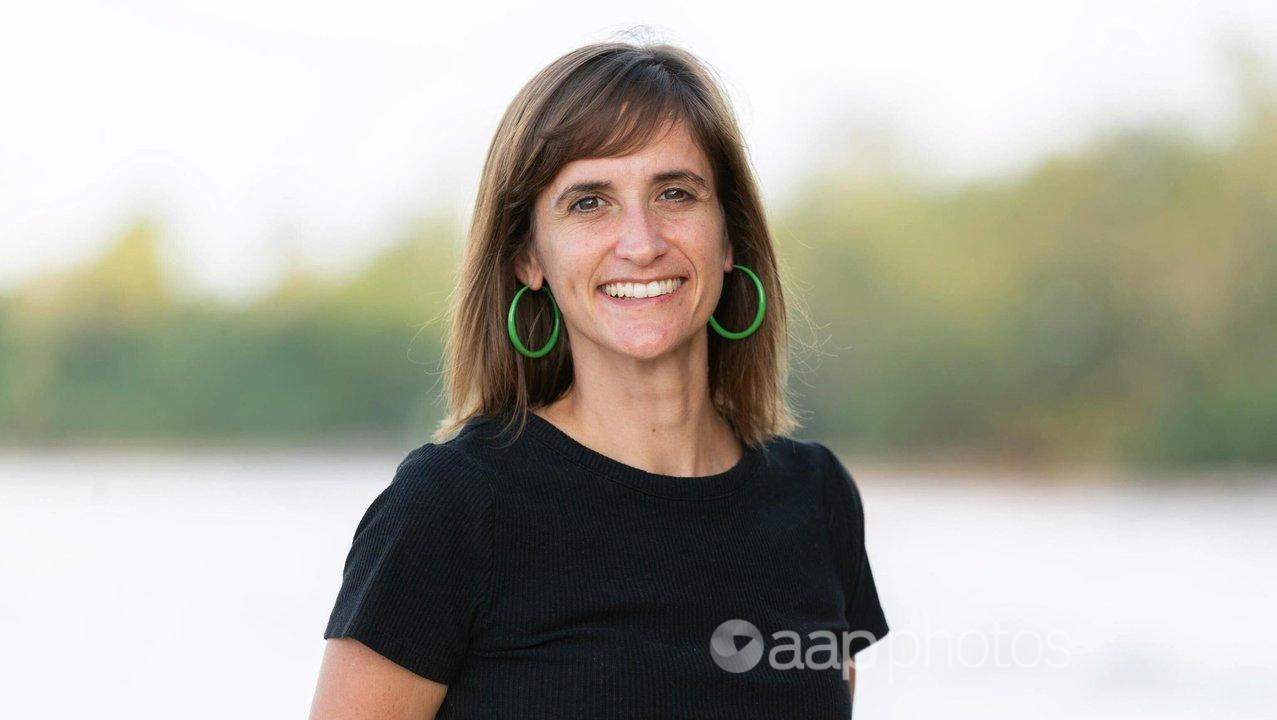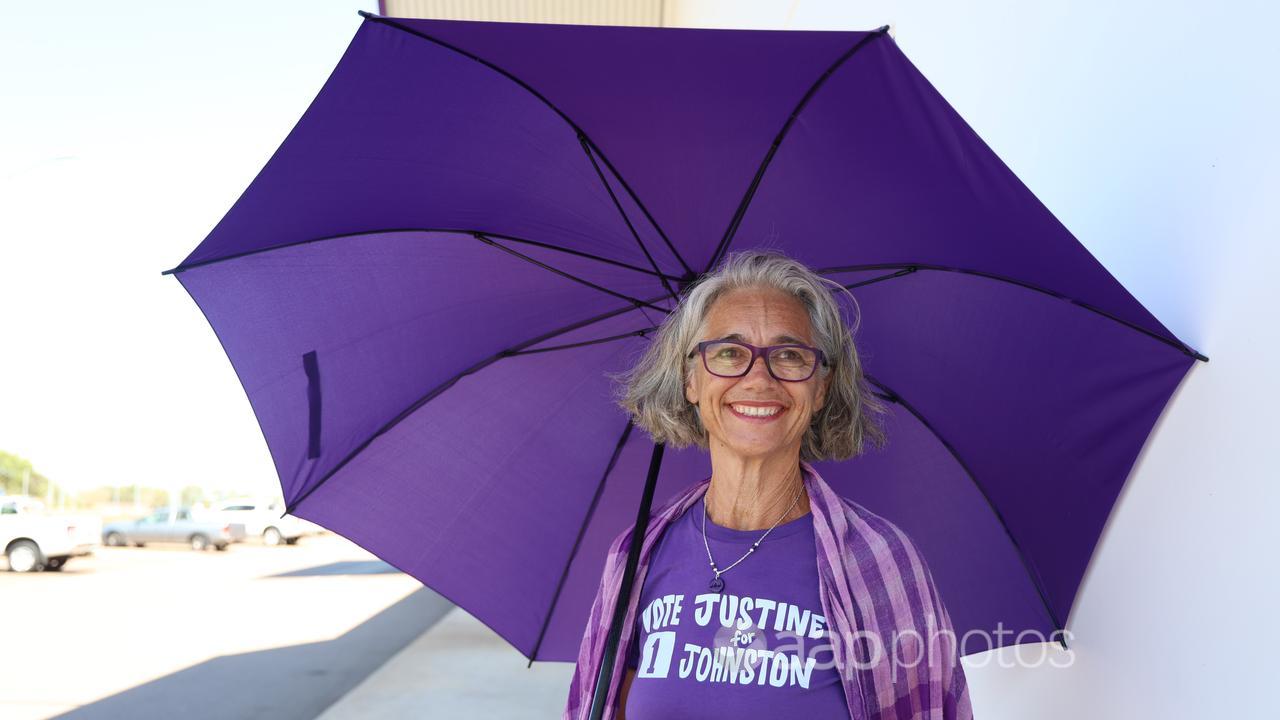As Northern Territorians set off for polling booths in search of a democracy sausage, and possibly a new government, there’s a question worth asking.
Could someone slapped with a trespass notice for Parliament House soon find herself sitting in it?
Danggalaba, Kulumbirigin and Tiwi woman Mililma May, 25, is running as an independent in the Darwin seat of Nightcliff after being banned from parliament for protesting changes to NT youth bail laws in 2021.
The electorate has been held by former chief minister Natasha Fyles for the past 12 years but Ms May, who is among a handful of noteworthy independents and Greens vying for change on Saturday, says results from the recent Voice referendum spurred her to run.
“Polling booths in Nightcliff at the referendum had the highest ‘yes’ vote out of metropolitan areas,” she says.
“And people have concerns about their way of life in Nightcliff, so everything from their safety and security but especially the cost of living and action on climate or the inaction on climate.”
Ms Fyles’ super safe northern suburbs seat was rattled in May last year by her decision to green-light fracking. It was a move that effectively made space for progressive independents and The Greens.

Government has traditionally not been won on preferences in the Northern Territory but a national trend towards independents could see that change.
Ms May says the belief any seat is safe is one the major parties try to sell voters out of apathy.
“I think it’s a way of helping them maintain their power and status quo, and kind of feeds into the illusion that we can’t have change every four years,” she says.
The independents have run campaigns juxtaposing the major parties, particularly when it comes to punitive approaches in the NT.
“I will not compromise on ensuring that Aboriginal children in the NT are thriving,” Ms May said.
“And I think as long as we centre young Aboriginal children in the NT thriving, every policy or law that we make from that will only be beneficial to everyone.”
The Greens have never won a seat in the Territory but lawyer Asta Hill, their candidate for Braitling in Alice Springs, could be their best chance.
It was won in 2020 by the Country Liberal Party’s Joshua Burgoyne by just 80 votes and has seen a groundswell of support for Ms Hill.
There’s also a Greens challenger in Police Minister Brent Potter’s Darwin seat of Fannie Bay: primary school teacher and law student Suki Dorras-Walker.

She recently ran in the Darwin City Council Lyon by-election which takes in the suburb of Parap – an area within the boundary of Fannie Bay – where she won the primary vote against a swag of others.
“I got 27 per cent of the primary vote,” she says.
Yet it’s a number she will need to better to win Fannie Bay.
“A lot of the conversations I had with voters was about fracking and also about how we can make our city more sustainable with bike lanes and more climate-ready with trees, and also just putting community front and centre of our decision making,” she says.
Climate, integrity and human rights appear to sit at the centre of the independents’ campaigns, and they could well be the linchpin for either major party should there be a hung parliament.
Johnston independent candidate Justine Davies says she ran because the community wanted a major party alternative.
“I think if anyone listens into parliament, they will hear that sometimes our elected representatives behave like kids,” she says.
“Every single person has said they want change and they’re not happy with how things are, so that’s something that I’m responding to.”

Other key seats to watch will include four in the satellite city of Palmerston, 20kms north of Darwin, where both Chief Minister Eva Lawler and Country Liberal Party leader Lia Finocchiaro hold seats.
A huge jump in population from 2020 saw the redistribution of all seats in the region and impacted the neighbouring marginal electorates of Fong Lim and Port Darwin.
More than 74,000 people have voted ahead of Saturday, which could account for two thirds of overall turnout.




















